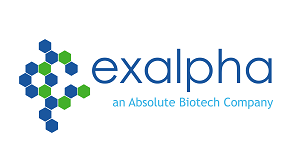Product description
Alzheimer's disease (AD) is characterized by formation of plaques of amyloid beta peptide (Abeta). Autosomally-inherited AD had been shown only in connection with coding sequence mutations. Likely transcription factors whose mutation can cause loss of function are ADR1, MIG1, and PuF, and for gain of function; E12/E47, ITF-2, and RFX2. Adr1 controls the expression of genes required for ethanol, glycerol, and fatty acid utilization (in yeast). Adr1 can act directly on the promoters of ADH2, ACS1, GUT1, CTA1, and POT1. The yeast homolog of the AMP-activated protein kinase, Snf1, promotes Adr1 chromatin binding in the absence of glucose, and the protein phosphatase complex, Glc7.Reg1, represses its binding in the presence of glucose. A post-translational process is invloved in the regulation of Adr1 binding. Chromatin binding by Adr1 is not the only step in ADH2 transcription that is regulated by glucose repression, Adr1 can bind to chromatin in repressed conditions in the presence of hyperacetylated histones. In yeast, nuclear extracts prepared from glucose-repressed and glucose-derepressed cells are equally capable of supporting miniAdr1-dependent transcription and pre-initiation complex formation.
Specifications
Applications
WB
Supplier
Exalpha, an Absolute Biotech Company
Shipping & storage
Shipping condition
Room Temperature
Storage temperature
-20°C
Do you have any questions about this product?
Order your product by email
Productname
Adiponectin Receptor 1
X2050B
By filling out this form, you are placing an order by e-mail. You will receive an order confirmation within one working day. The order cannot be modified after receipt of the order confirmation.
Request a sample
Productname
Adiponectin Receptor 1
X2050B
By filling out this form, you request a sample. You will receive an order confirmation within one working day. The order cannot be modified after receipt of the order confirmation.
Are you looking for specific products, alternatives or documentation?












